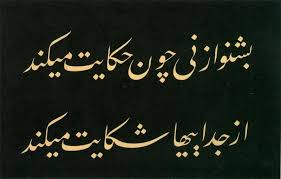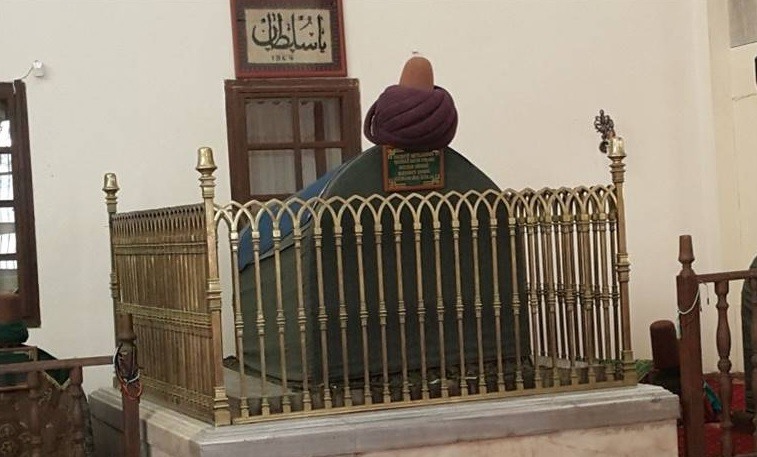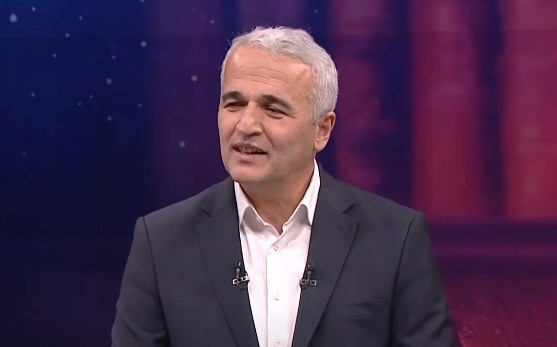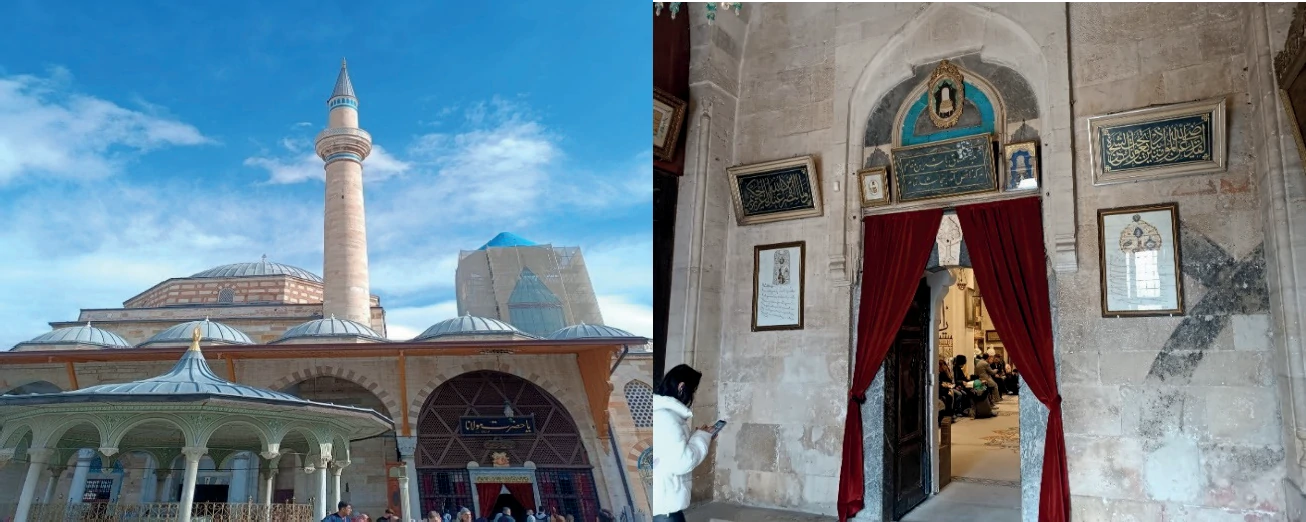THE PROBLEM OF MYSTIC RELATIONSHIP – Natalia Ilyiniçna PRIGARINA
III. ULUSLARARASI MEVLÂNA KONGRESİ
THE PROBLEM OF MYSTIC RELATIONSHIP IN CALAL AD-DIN RUMI AND MUHAMMAD IQBAL
Prof.Dr. Natalia Ilyiniçna PRIGARINA*
The great poet of the East Muhammad Iqbal (1877-1938) mentions Rumi in his poetic works in different ways. Rumi is the character of some poems, or even of the chapters in his masnavis, he is the guide for the celestial spheres in Javid-nama. Iqbal quotes Rumi’s lines and periphrases them, he refers to his sayings, or presents his whole ghazal, etc. He makes use of Rumi’s style in the titles of chapters of his masnavis. In contrast to Hafez, who is never mentioned by name in Iqbal’s Persian poetry (though he is quoted 55 times in the deifferent way), and 4 times only in his Urdu poems, Rumi’s name appears in the Iqbal’s Persian poems around 70 times – in the second place after the Prophet Muhammad, and 23 times in the Urdu collection. The Indian scholar Vazir al-Hasan Abidi mentioned in his article that from 119 Qur’anic quotations used in Iqbal’s poetry 98 coincided with those used in Masnavi-ye Maanavi.
The problem of Rumi’s influence upon Allama Iqbal (1877-1938) seems to be clear enough for the majority of scholars dealing with Iqbal’s activity as a poet and philosopher since the times of R.Nicholson. It is universally recognized that Iqbal like none other in the 20-th century succeeded in presenting the greatness of Rumi and his importance for the spiritual life of people of both the East and the West. Rumi’s name is one of the well known names of the Oriental sages in the civilized world. “However, the ingenious interpretation of Rumi by Iqbal remains unsurpassed”, as A. Shimmell puts it.
It is a well-known fact that Muhammad Iqbal considered himself to be a follower of Jalaluddin Rumi in his main philosophic concepts, namely of Self (Khudi) and Love. Iqbal’s concept of the Perfect man also owes some important ideas to Rumi. The concept of human and Divine personality and the concept of the Muslim nation are presented in Iqbal’s poems written in Persian, Asrar-e Khudi (The Secrets of the Self, 1915), and Rumuz-e Bikhudi (The Mysteries of Selflessness, 1918). In the Introduction to the Asrar-e Khudi Iqbal claims Rumi to be his spiritual guide who saved him from frustration and hopelessness, and gave him the belief in the creative power of human personality. Moulana Rumi’smessage provided Iqbal, as he confessed, with a new life and the ability to create a philosophy, which fitted the urge of Indian Muslims of the time.
The picture of the interrelation is, one would think, quite impressive and definite. Particularly, there are still some considerations concerning Divan-e Shams and Rumi’s prose. A.Schimmel wrote about it: ‘As to the influence of the Divan, it cannot be traced as easily as that of the Mathnawi’.
One of the most significant notions used by Iqbal as a term in his philosophy of Love and Perfect man is the word a:r(e)zu:. Iqbal would use it in the meaning of the inner force, the stimulus of love.
In his Stray reflections dated 1910, Iqbal wrote: “The superb Rumi bom to the Muslim world at a time when enervating modes of life and thought and an outwardly beautiful but inwardly devitalizing literature had almost completely sucked up the blood of Muslim Asia and paved the way for an easy victory for the Tartar was not less keenly alive than Nietzsche to the poverty of life, incompetence, inadequacy and decay of the body social of which he formed a part and parcel. See with what unerring insight he describes the corroding disease of his society and suggests the ideal type of Muslim manhood:
Di. sheikh ba: chera:ghhami: gasht gerd-e shahr
Kaz da:m-o-dad malu:lam-o-ensa:nam a:rzu:st.
Zin hamraha:n-e sost-ana:ser delam gereft
Shi:r-e khoda:-wo-Rostem-e dasta:nam a:rzu:st!
Goftam ke ya:ft mi:nashavad joste-i:m ma:
Goft: A:n ke ya:ft mi.nashavad a:nam a:rzu:st”
Once he discovered an ideal object for the Muslim society, Iqbal never ceased to follow the idea, which was stated in these words. These lines are used by Iqbal as the epigraph to his first Persian masnavi ‘The Secrets of the Self (Asrar-e Khudi, 1915). The term ar:rzu:- is discussed in the huge passage in Chapter 2:
Life is preserved by purpose:
Because of the goal its caravan-bell tinkles.
(270). Life is latent in seeking,
Its origin is hidden in desire (a:rzu:) Keep desire alive in thy heart,
Lest thy little dust become a tomb.
Desire is the soul of this world of hue and scent,
The nature of every thing is faithful to desire.
From the flame of desire the heart takes life,
And when it takes life, all dies that is not true. 280.
When it refrains from forming desires
Its pinion breaks and it cannot soar.
Desire is an emotion of the Self,/
Is the restless wave of the Self s sea. 285.
Desire is a noose for hunting ideals,
A binder of the books of deeds. 296. ‘
Tis desire.that enriches Life,
And the intellect is a child of its womb. 320.
We live by forming ideals (objects – takhli.q-e maqa:sed).
We glow with the sunbeams of desire.
The concept of desire was developed in the collection of Persian verses, and in Bal-I Jibreel.
What are then RumTs ideas concerning this subject?
In Masnavi the word a:rzu: occurs 32 times including the title of a chapter and a footnote. It is worth mentioning that it doesn’t have the single meaning as it does in Iqbas case, where the word is always used with a positive connotation. In Rumi, its semantics differs according to the context of the bayt (or widely, of the story itself) in which the word appears.
Sometimes Rumi uses the word in the meaning of a simple wish: [1]”At night because of the pain in my back and the (pangs of) hunger in my belly I am always wishing to die” (5.2373). “I have a comely daughter of very high estate, she was desiring (a:rzu mibud u:ra:} (to marry) a true believer” (5.3374) (See also 3.4698).
Sometimes it has the meaning of the ‘ardent desire’ to which Iqbal’s use of the word could be compared: [2] “Afterwards they said: ‘We desire to follow thy leadership (in prayer) O, holy friend” (3.2064).
In some contexts the desire is regarded as the way to achieve an object, and God is He, who is supposed to help the pious man to carry out the intention. [3]”Thou bestowest thy bounty (even) on strangers: Every ardent wisher (gams) his desire [a:rzu:] from Thee” (6.4221); [4]”Patience brings the object of desire \a:rzu:\ not haste. Have patience – and God knowest best what is right” (1.4003); [5]”Since thou wishest it so, God wishes it so: God grants the desire [a:rzn:]of the devout” (4.6).
But these are practically all the examples of neutral or positive use of the word in the Masnavi. The basic corpus of examples – 23 out of 32 – gives quite a different understanding of the word in Masnavi. It has the semantics of the desire to possess, mostly unreasonable, immoderate or wanton ([6] “Sweetmeat is what children long for” (1.1601); “desire for half of an unripe grape” (3.2029), [7]”The eater of clay has a desire for clay” (3.3285) also 3.2352; 6.1330, 6.1332; 6.460. Desire is often directed to the impertinent affairs (4.3288), is vicious (4.1350), leads to the vain hazard (3.2010). Man even does not understand the fallaciousness of the cherished desires, because it is hidden from him by a veil [8](4.1349). So desire is the most dangerous side of human life: ‘This world is a trap, and desire is its bait” (6.377-378). There appear more definite signs of danger: “Be not a friend to (sensual) passion and desire since it leads you astray from the way of God” (2.2957; also 1.1101; 5.3528). The apprehension of the object of desire is obstructed by the absence of the means of expression (2.3688) – the story of angur and uzum (grape – in Persian and Turkish). The spiritual desire is higher than the desire for the carnal and mundane (1.3969). The fear of God ties the hands of desire (5.3067), and the conclusion is: [P]”Flee from the traps, quickly turn your face (towards God)” (6.377), “Abandon desire, in order that He may have mercy (on you): You have found by experience that such (renunciation) is required Him” (6.381).
What’s more, in Fihi ma’fihi there is a definition of the notion ‘desire’ given in the comprehensive discourse: “We said: The man had the desire to see you. He kept saying, ‘I wish I could have seen the Master’. The Master said: He does not see the Master at this moment in truth because the desire, which filled him, namely that he might see the master, was a veil over the master. So he does not see the Master at this moment without a veil. So it is with- all desires and affections, all loves and fondness which people have for every variety of thing -father, mother, heaven, earth, gardens, palaces, branches of knowledge, acts, things to eat and drink. The man of God realizes that all these desires are the desire for God, and all those things are veils. When men pass out of this world and behold that King without these veils, than they will realize that all those were veils and coverings, their quest being in reality that One Thing”
To make it clear, Arberry comments on this passage in the following way: “The report that a certain man desired to see Rurni leads to a discussion of the true nature of desire, that all human cravings spring from the one overriding desire, to see God. Mundane desires are veils over God’s beauty to save man from the annihilation which would follow the unveiled epiphany of the Divine”.
Therefore it is obvious that the meaning of the notion a:rzu: in the Masnavi is just opposite to the Iqbal’s use of the term: While Iqbal considered a:rzu: as an inalienable part of Divine and human love, Rumi regarded a:rzu: as a veil concealing the Divine essence and creating phantoms in person’s life.
The next step is to return to the beginning of our discussion – to the lines of Rumi’s ghazal quoted above, and hence to the Divan-e Shams. To start with, one thing is worth mentioning: Divan contains three ghazals with the radif a:rzu:st: with the matla’ “Benma:y rokh ke ba:gh-o-golesta:nam a:rzu:st/Bogsha:y lab ke qand-e faravainam a:rzu:st (4614-4637 bb.), “Sa:qi va sardehi: ze lab-e ya:ram a:rzu:st /Badmastii: ze nargis-e khumma:ram a:rzu:st” (bb.4763-4781) and “Ey chang pardeha—ye: sipa:ha:nam a:rzu:st/V-ey na:y na:la-ye khosh-e su:za:nam a:rzu:st” (4825-4834).
In only these three ghazals the word a:rzu: is repeated 56 times, it is 24 times more than in all the Masnavi! Even if we concentrate only on these examples, we could find what we are looking for. The ardent passion to see the Beloved’s face expressed with the rare poetic force was enough to induce in Iqbal his romantic quest for the Perfect man, which is the goal of Creation.
Of course A.Schimmel is right to notice that the saying about Iqbal as ‘Rumi of the age’ (Rumi-ye asf) needs ‘a grain of salt’, “For Iqbal lacks the strong overwhelming experience of love which transformed Jalaloddin into a poet”. But Iqbal was passionate as well, and his passion was different from Rumi’s one because of the appeal of his time.
I’d like to quote here Alam Khundmiri, in my opinion, one of the most profound scholars of Iqbal’s philosophy: “That which to Rumi was a passionate longing (italics mine. – N.P.) appeared in Iqbal’s vision as the next stage of human evolution” […] and he was in agreement of his contemporary revolutionary humanists, that a “new human order needs a new type of man”.
* Institute of Oriental Studies RAS, Moscow, Russia











